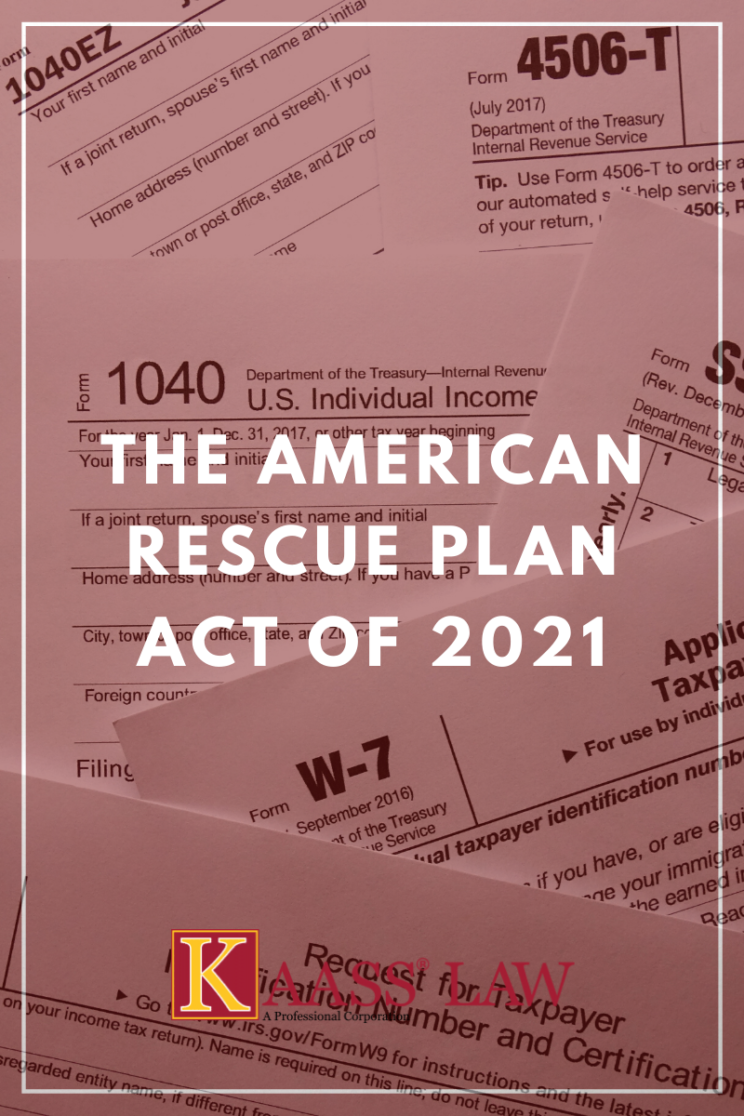What is the American Rescue Plan Act of 2021?
This bill was passed on March 6, 2021 and provides relief to address the continued impact COVID-19 has had on the economy, public health, individuals, and businesses.
What will the American Rescue Plan Act Provide?
The American Rescue Plan Act of 2021 will provide funding for individuals and entities, including but not limited to, schools and institutions of higher education, small businesses, and emergency rental and homeowner assistance.
The Act will also provide an extension on unemployment benefits, expand and otherwise modify certain tax credits, including the child tax credit and the earned income tax credit.
What is the Child Tax Credit?
This credit is for parents who have children under the age of 17 years old. Taxpayers can claim a child tax credit of up to $2,000 for each child under the age of 17 years old who is an American citizen. The credit is reduced by 5% of adjusted gross income over $200,000 for a single parent and $400,000 for married couples.
What is the Earned Income Tax Credit?
The earned income tax credit is a way to support working parents who are either of low or moderate income. Working parents can get a credit equal to a percentage of their earnings for up to a maximum credit. In 2019, this credit could be up to $6,557 and $6,660 in 2020. However, once the credit reaches its maximum, the credit will lower with each additional dollar of income made until no credit is available.
In What Way Specifically Will the American Rescue Plan Act Effect Taxes?
As mentioned, the American Rescue Plan Act of 2021 alters existing tax policies. For example, the child tax credit will be increased from $2,000 to up to $3,600 per child that is under the age of 6 years old. Also, those who have children ages 6 to 17 years old and low tax bills can expect a tax credit of $3,000 per child. This is a new system that will pay a portion of the child tax credit in advance over the last 6 months of the year.
Additionally, tax credit will be extended for single individuals who make more than $75,000 and married individuals who make more than $150,000. The existing credit tops out for single individuals making more than $200,000 and married individuals making more than $400,000.
The legislation also effects the tax credits that parents receive to subsidize the cost of child care this year. Currently, the credit is worth 20% to 35% of eligible expenses with a maximum value of $2,100 for two or more qualifying individuals. The stimulus bill increases that amount to $4,000 for one qualifying individual or $8,000 for two or more.

